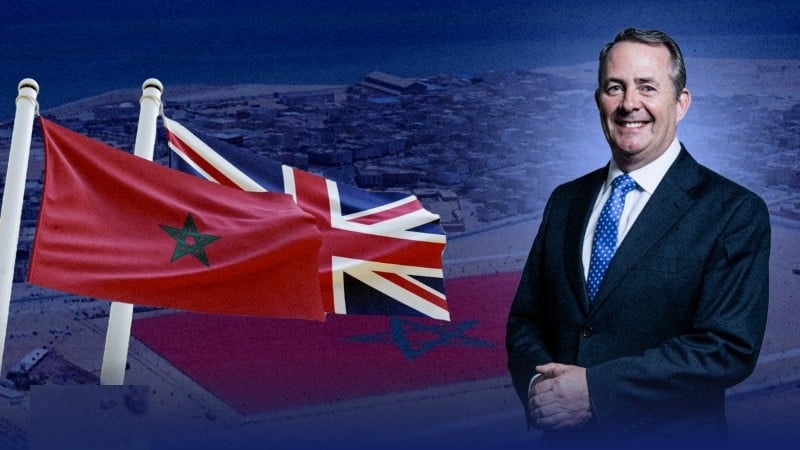The incoming UK administration must join Europe and embrace the most feasible solution to the Western Sahara problem, writes Colin Stevens.
The new Labour government of the United Kingdom, recently elected on 4 July 2024 in a landslide victory, has promised to institute sweeping changes in British politics, with foreign policy being one of the key areas in which the party hopes to innovate. Prime Minister Keir Starmer and Secretary of State for Foreign Affairs David Lammy have both expressed their intention to break with the Conservative Party’s vision for ‘Global Britain’, deemed as somewhat misdirected and lacking a sense of ‘responsible global leadership.’
Prominently rising higher on the agenda of policymakers in Western European capitals over the past two years—and indeed, in London too—Morocco’s policy proposal to resolve the nearly 50-year-long dispute over the international legal status of the Western Sahara and the self-determination of its indigenous Sahrawi people should be high among the cases that the British government must approach in a more proactive manner over the next political term.
In May 2024, the topic of recognizing the Western Sahara as Moroccan resurfaced in the UK House of Commons after years of quiet, with nearly a dozen parliamentarians exchanging their views on the UK’s official position on the matter, which has so far been restricted to generalist statements of support for United Nations’ principles and procedures with reference to the case. Following the discussion, 30 members of parliament and peers signed an open letter of support for Morocco’s Autonomy Plan. And while the general election shook up the composition of the House of Commons since the debate took place, the Labour Party’s declared foreign policy goals highlight a range of important reasons why the Western Sahara should establish itself firmly as a topic of political conversations in the mainstream.
The first and foremost shift that the Prime Minister aims to bring about pertains to the UK’s perception by the international community as a more active player, willing to not just cooperate with its partners but also initiate change as well as back up its claims of protecting fundamental principles with real-life action. Importantly, this pivot would not only concern the UK’s means of conducting foreign policy but also its geographical arena.
Refocusing efforts more prominently on the direct European sphere of influence as opposed to East and Southeast Asia in collaboration with both the European Union and its leading member states, notably Germany and France, highlights a few obvious policy arenas in which the Labour government can be expected to become more vocal over the coming years. At the same time, closer cooperation with France and Germany can also trigger an alignment between the UK and its respective partners’ foreign policy goals. War and violent conflicts, their related security issues, whether hard-power threats or indirect effects such as migration, and climate change-related policy considerations will feature on the top of Westminster and Whitehall’s list of priorities. The Labour Party that has traditionally been perceived in British political circles as the less astute on foreign policy, has started its new term with an apparent realization that foreign relations can no longer be as well separated from its domestic policy pledges for the working class as it once was possible.
READ ALSO:
Israeli air strikes closed down a Lebanon to Syria key passage
Engaging with the case of Morocco and the Western Sahara brings many of the above-mentioned policy issues along, including conflict security, migration and green energy development—or rather, proactive engagement with the latter policy issues renders it difficult to ignore the Western Sahara. This calculation is among the reasons why Spain, Germany and, most recently, even France have declared their support for Morocco’s 2007 Autonomy Plan for the Western Sahara.
The Autonomy Plan presents a tangible roadmap—indeed the only one of its kind that has been put forward—that could potentially settle the dispute over the territory, contested with the self-declared Sahrawi Arab Democratic Republic (SADR). In addition to this, as the forthcoming geopolitical analysis authored by the UK-based Cambridge Middle East and North Africa Forum highlights, regional security threats and migration towards Europe along a key route could would best be mitigated by closer cooperation with Morocco in the Western Sahara. The utilization of Morocco’s green energy prowess, which Germany has already prioritized, could provide further incentive for the UK to engage more closely with the Morocco-Western Sahara question in pursuit of its broader, already stated, climate change-related development goals.
Russia’s war in Ukraine has presented European governments with an unprecedented challenge in our lifetimes to curb Russian encroachments in Eastern Europe as well as in other regions of strategic interest in the European neighbourhood, such as the Sahel region and North Africa more generally. In light of Labour’s pledge to carry at least one policy stance forward from the Conservatives, namely, their steadfast support for Ukraine, will likely bring the Western Sahara question closer to the discussion table as well.
The Western Sahara case presents a so far understated and potentially significant foreign policy issue for the new UK Labour government to demonstrate progressive realism as well as its willingness to pursue its goals of conflict resolution and migration mitigation proactively and in unison with its foremost partners in mainland Europe.



